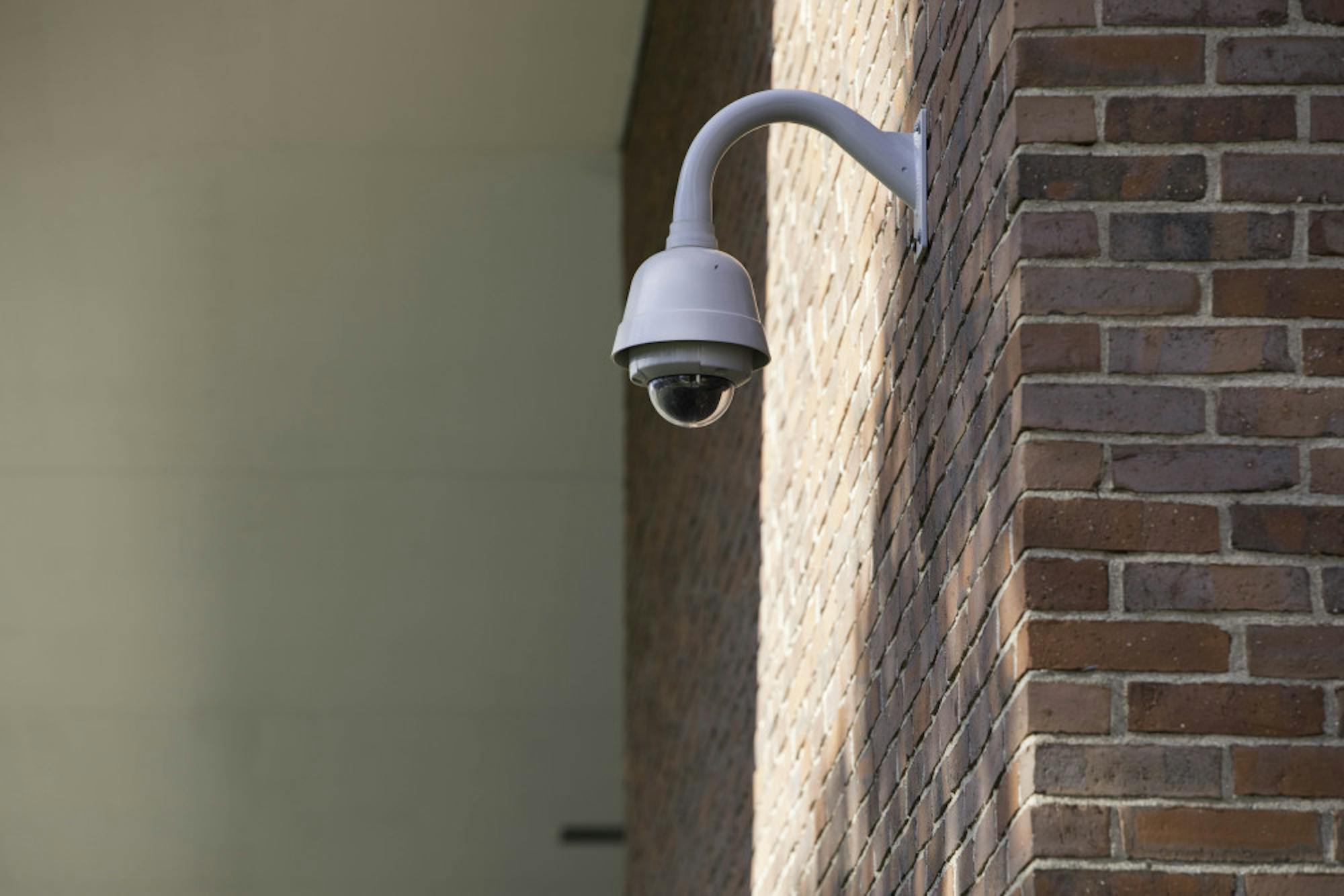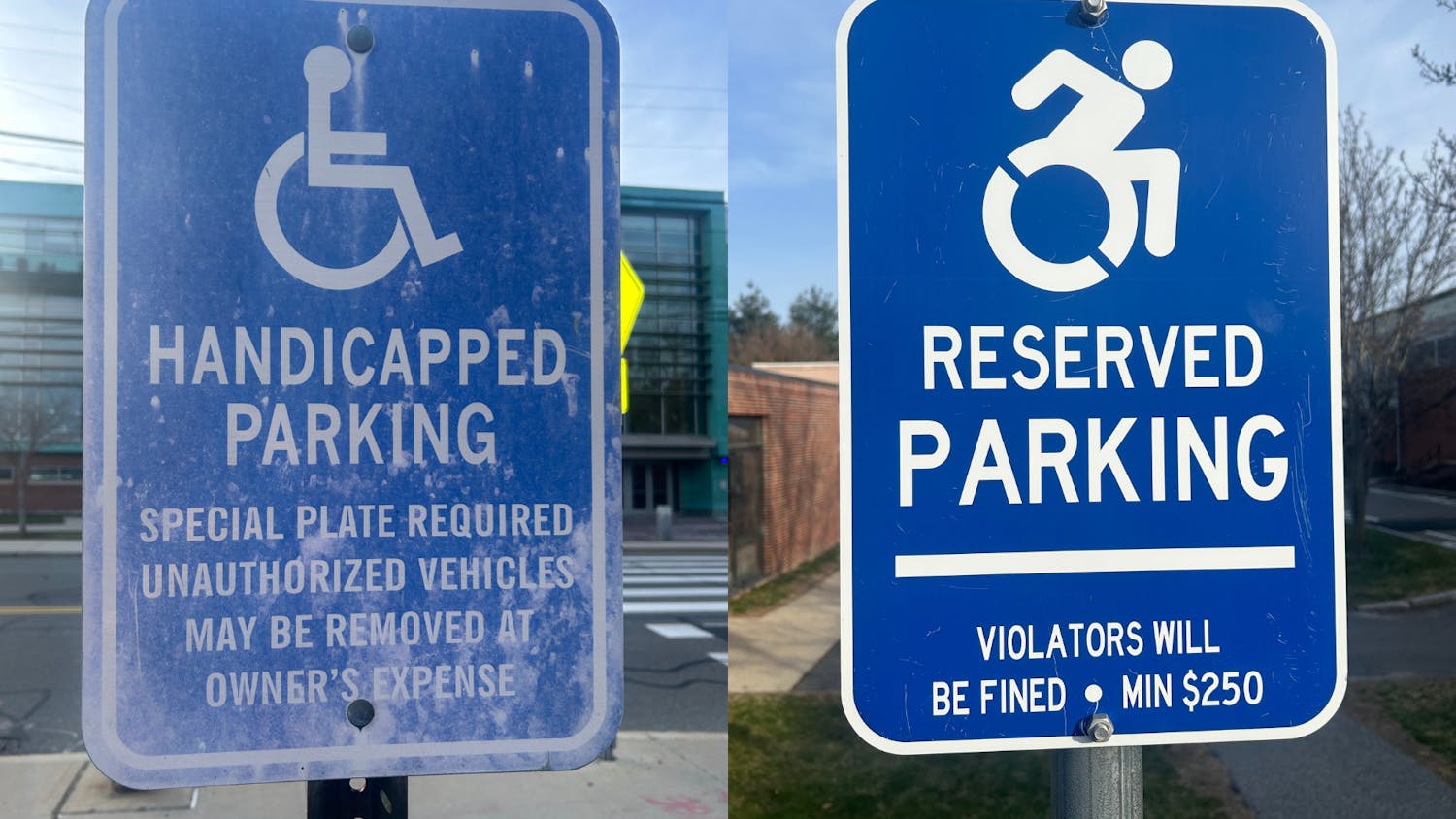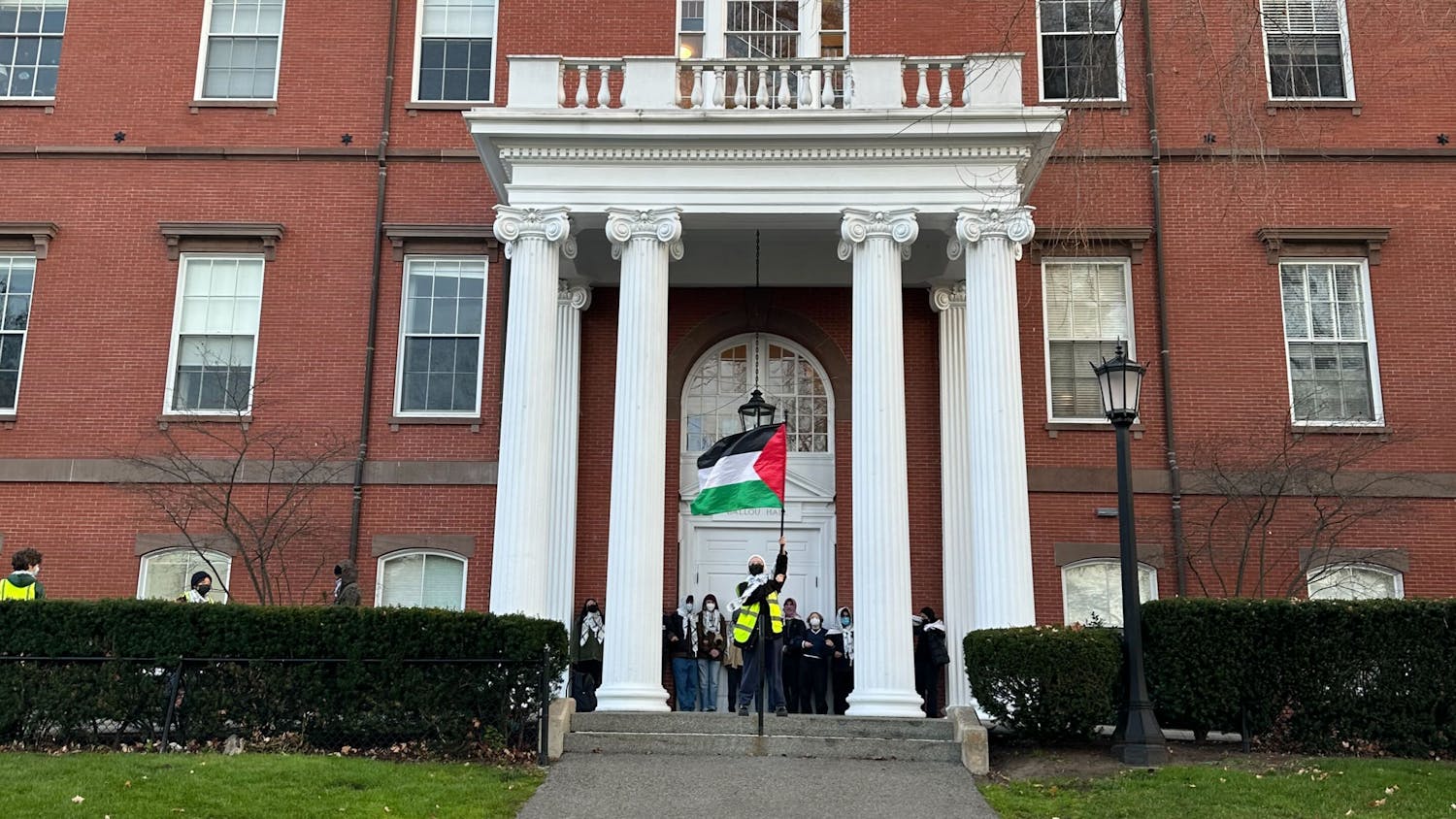Editor’s note: This is the final article in a two-part series produced by the Daily’s Investigative Team. The first part was published on Nov. 30, and is posted online.
In 2012, Tufts administration spearheaded a program to establish a formalized surveillance security policy that would cover both the cameras that had previously been installed on campus and the installation of more cameras. Despite some opposition from the student body, the program, which was led by the Department of Public and Environmental Security (DPES), was completed in July of 2014.
The university repeatedly justified the policy as a measure to help ensure students’ safety, indicating that would be the primary purpose of the footage; in a 2012 Daily article discussing his vision for Tufts, University President Anthony Monaco addressed student concerns over the new policy in similar terms.
“Now I think, as far as I understand it, these are not going to be someone sitting with a deck full of monitors watching Tufts students go about their daily lives,” he said. “This is just on a recording basis, so if there was an assault or if there was a theft or someone got into a dorm room … [Public Safety] could go back … and review the tapes, and that should help them catch the culprits.”
Student discomfort with Tufts’ surveillance and policing practices grows
Recently, however, student concerns around police presence on campus have been growing, not only in regard to video surveillance but primarily due to Tufts University Police Department (TUPD)'s use of unmarked police vehicles. A Sept. 25 Observer article by Jonathan Innocent highlighted concerns from students with marginalized identities, particularly black students, who felt targeted by the program.
In an Oct. 15 email to the Daily, LGBT Center Director Hope Freeman wrote that she had requested cameras be placed outside the Bolles House this past summer to monitor for possible homophobic activity and hate crimes “as a result of numerous reported homophobic and transphobic attacks and slurs hurled at LGBTQ students at the end of last semester.”
However, she found that in addition to these cameras, one had been placed in the main lobby of the building. She requested it be removed, and it was taken out less than a week later.
“When coming into the center and seeing the camera in the lobby you could already feel a shift in the sense of safety and it was not positive, the students did not like this feeling and neither did the Directors,” Freeman wrote.
Such incidents as the ones relayed in the Observer article and by Freeman indicate that a lack of transparency on the part of TUPD can lead to mistrust and suspicion from Tufts community members.
“If these surveillance vehicles are to be used in the interest of the community, we should be informed about why, and to what end,” Innocent wrote in the Observer. “The more I walk on this campus at night and notice a black vehicle with tinted black windows parked outside of Aidekman or stowed in the first level parking lot in front of their station at Dowling, it becomes harder for me to know if TUPD is watching out for me, or just plain watching me.”
In an interview with the Daily, Kade Crockford, director of the Technology for Liberty Program at the American Civil Liberties Union of Massachusetts, spoke on the importance of transparency in surveillance practices.
“When surveillance unfolds in secret, communities are not invited to participate in a dialogue or policy-establishing conversations that would enable folks in the community to feel comfortable with surveillance cameras,” she said.
Part of the need for these conversations, Crockford said, is in order to ensure that surveillance technologies are not “used in ways the community would find inappropriate.”
Spying on streakers?
On May 3, 2017, a group of students gathered on the Academic Quad to participate in a loosely planned recreation of the Naked Quad Run (NQR), an annual event that had been a sanctioned Tufts tradition for decadesuntil the practice was ended in 2011.
According to TUPD spokesperson Kevin Maguire, NQR was cancelled after the 2011 run due to concerns about students' health and safety. These concerns were reiterated in a “Jumbo Digest” email sent by the Dean of Student Affairs Office to members of the Tufts community on April 30, 2017 — just three days before the NQR.
“The NQR was banned ... because of the many serious legal and public safety concerns it raised, including violations of law, injuries, possible predatory actions, and the widespread circulation of students’ photos on the internet without their permission” the email said.
The Daily spoke to two recent graduates — Robert Sucsy (LA ’17), who is now a student at the Tufts School of Medicine, and a 2017 graduate who wishes to remain anonymous due to concerns about further punishment from administration — who said that they received disciplinary action as a result of evidence they believe was gathered through surveillance cameras. Both students felt that the use of video footage to investigate students for minor, noncriminal code of conduct violations was inappropriate.
Sucsy said that both he and the anonymous student were notified of having broken the Tufts Code of Conduct during Senior Week. Then, on June 15, Sucsy was emailed a letter from the Associate Dean of Student Affairs Christopher Rossi specifying his individual breaches of Tufts policy. Sucsy was charged with indecent exposure, while the anonymous alum said that they and two other students contacted by TUPD were charged with allegations including indecent exposure, sexual exploitation, and sexual misconduct.
According to the letter sent by Rossi to Sucsy, the accused had various options to available to him. Both alumni opted to accept responsibility for their participation in the NQR, which meant that the case was handled by a dean’s decision. Sucsy said that this resulted in him being placed on disciplinary probation, and prevented him from registering for his graduate school classes on time due to a subsequent freezing of his SIS account.
According to the anonymous alum, there were at least two other students who were contacted and punished by administration. Sucsy and the anonymous alum will have marks on their transcript through May 2018, while, according to the anonymous alum, the two other students will have marks until December 2017 and an unspecified date in 2019.
Sucsy told the Daily that during a phone call he had with administrators about the charges, Rossi, who handled the investigations, referred to evidence of the students’ involvements and promised to back up claims of such evidence if the student did not admit guilt.
The anonymous alum told the Daily that they believe the evidence Rossi referred to was footage from Tufts’ video surveillance system.
When asked via email, Maguire did not respond to the Daily’s question as to how these students who participated in the NQR were identified.
Director of Community Standards Kevin Kraft declined to disclose how students were identified, telling the Daily in an email that he was unable to comment on individual cases due to concerns for student privacy.
However, Kraft did confirm that the university is sometimes provided with surveillance footage as part of evidence for investigations, even when they are noncriminal. This is made clear in the video security policy as well.
Rossi did not respond to requests for comment about his involvement in the investigation by press time.
Sucsy said that after he admitted to participating in the NQR, he was asked by administration to write a letter regarding his decision to do so. In the letter, which was provided to the Daily by Sucsy, he was asked to respond to such questions as: “What have you learned about yourself and your decision making as a result of this situation?” and “In what ways does running naked in public impact yourself and others?”
In response, Sucsy maintained that the event was in no way a public safety concern and had no detrimental results for students, expressing his frustration with the administration’s focus on the case.
“As for the impact on myself,” he added, “I have had to spend many hours jumping through hoops so that the administration of a school I no longer attend will not force me out of my graduate program.”
In his letter, Sucsy noted the importance of events like the NQR for students, explaining that it is one of the only events where students feel they can have agency in their community.
“One of the reasons the NQR is so revered by students is because pretty much every event at Tufts is coordinated through an administrator at one point,” the letter reads. “So the run is an opportunity to take place in an event that we feel we have control over, if only for ten minutes.”
Crockford explained to the Daily that for institutions like Tufts, video surveillance is primarily about controlling the actions of community members.
“Surveillance is about power and control. If you know what everybody else is doing, and has been doing, with whom, when and where, you have a lot of power to control those people and control the community,” she said. “And that’s clearly what happened here.”
Despite having been punished for his participation, Sucsy maintained that the event was an extremely positive experience.
“The event which I attended was one of the most positive atmospheres I experienced at any college event,” he wrote in his letter to the administration.
Video surveillance: Cameras spark concerns over appropriate use of footage

Cameras behind Lewis Hall's Crafts Center are pictured on Nov. 29.





